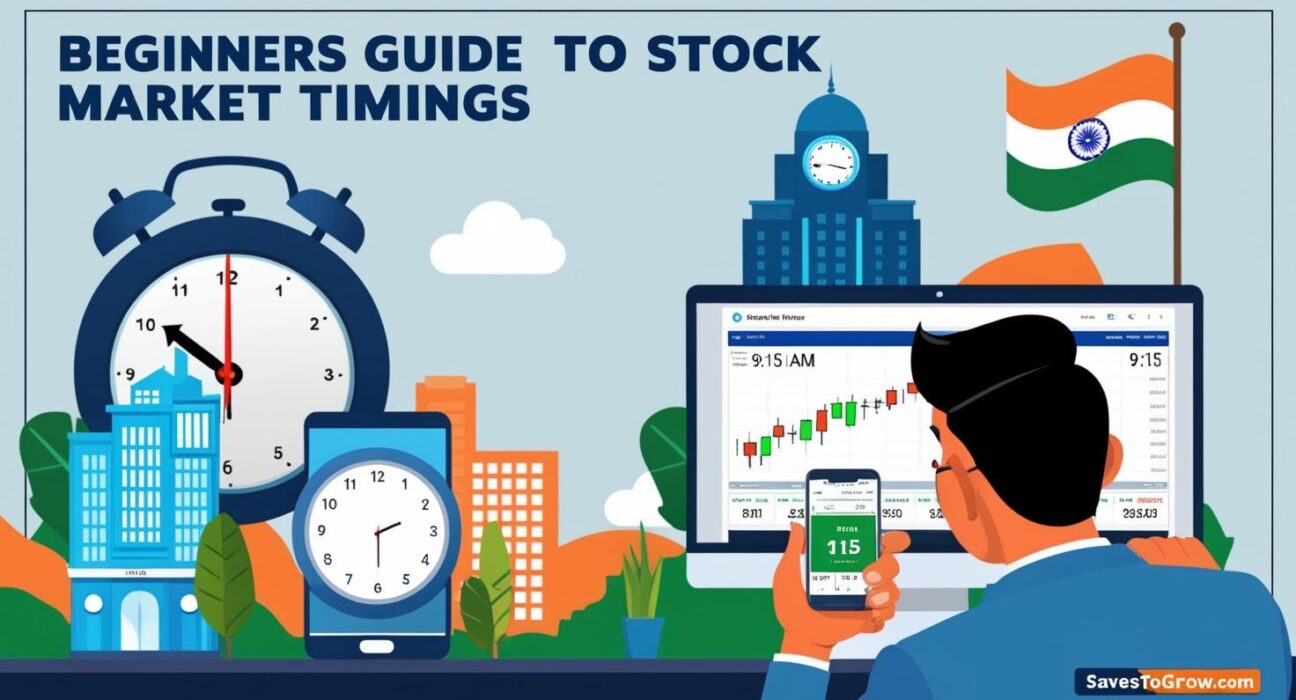The Indian stock market is one of the largest and most dynamic in the world. If you’re a beginner investor or trader in India, understanding the trading hours is crucial for planning your buying and selling strategies. In this article, we’ll break down the stock market timings, the various market sessions, and how they impact your trades.
1. What Are the Indian Stock Market Opening Hours?
The Indian stock market primarily consists of two exchanges: the National Stock Exchange (NSE) and the Bombay Stock Exchange (BSE). Both exchanges have set trading hours, with the market opening at 9:15 AM IST and closing at 3:30 PM IST, Monday through Friday. However, there are a few nuances that every investor should understand.
2. Pre-Opening Session (9:00 AM to 9:15 AM)
Before the market officially opens at 9:15 AM, there is a pre-opening session between 9:00 AM and 9:15 AM. During this time, market participants can place their orders, but no trades are executed. This session helps determine the market opening price for stocks, as it accounts for buy and sell orders queued during the off-hours.
3. Market Trading Hours (9:15 AM to 3:30 PM)
- Opening Session (9:15 AM to 10:00 AM): The first 45 minutes are considered critical for market movements. Stocks can be volatile, and the initial trends can set the tone for the rest of the trading day.
- Normal Market Session (10:00 AM to 3:30 PM): After the initial volatility, the market generally stabilizes and moves in line with news, announcements, and investor sentiment. This period is when the bulk of trading occurs.
4. Lunch Break (12:30 PM to 1:30 PM)
Unlike international markets, the Indian stock market doesn’t have a continuous trading session. There’s a break from 12:30 PM to 1:30 PM, during which trading is paused. This one-hour break is ideal for traders to reassess market conditions.
5. Post-Closing Session (3:30 PM to 4:00 PM)
Once the market closes at 3:30 PM, there is a post-closing session from 3:30 PM to 4:00 PM. During this time, market participants can modify or cancel their orders. This session doesn’t see active trading, but it helps in order adjustments.
6. Why Is Market Timing Important for Investors?
- Avoiding Market Volatility: The first and last hour of trading is usually the most volatile. For new traders, it’s recommended to avoid making major trades during this time unless you have a clear strategy.
- Maximizing Opportunities: Knowing when to trade and understanding peak market hours can help you make more informed decisions. For example, the market is often more liquid during regular hours, which can reduce slippage.
- Global Market Sync: The Indian stock market’s timings are aligned with major global stock markets like the US and Europe. Being aware of the global market’s opening and closing can help anticipate trends in the Indian market.
7. Other Key Information for Traders
- Market Holidays: The Indian stock market remains closed on public holidays. It’s important to check the NSE and BSE holiday calendar to stay updated.
- Extended Trading Hours: While the regular market hours are fixed, some brokers offer extended hours trading for certain securities. This allows you to trade beyond the typical session timings, although it may come with higher risk and lower liquidity.
Conclusion:
Understanding the opening and closing times of the Indian stock market is essential for making informed trading and investment decisions. Whether you’re a long-term investor or a day trader, aligning your strategy with the market’s operational hours can enhance your chances of success. Keep an eye on market news and trends, and don’t forget to manage your risk wisely!






